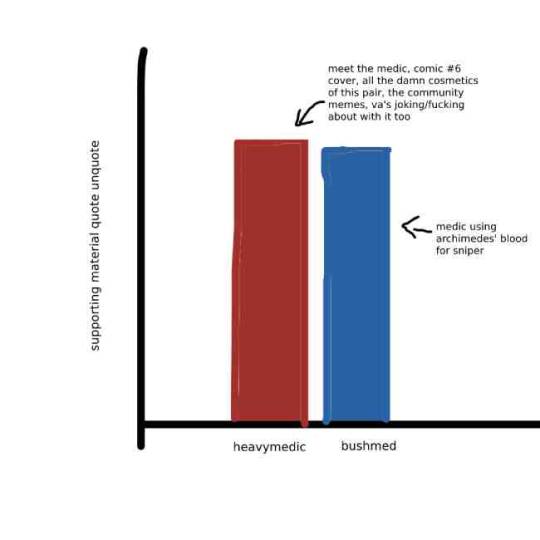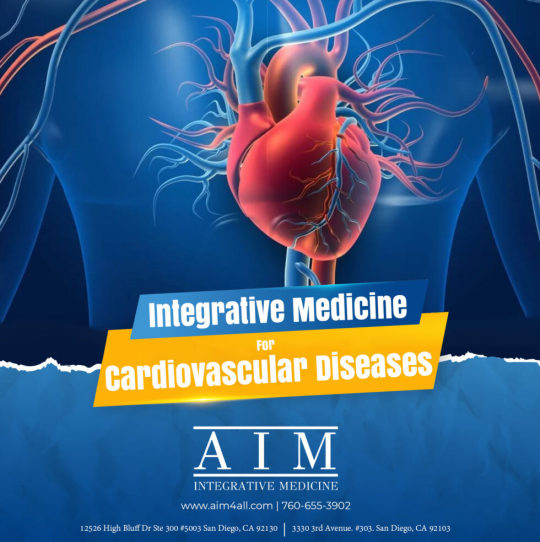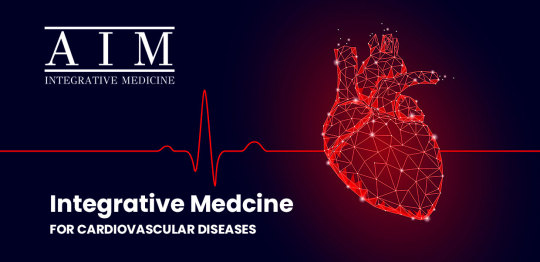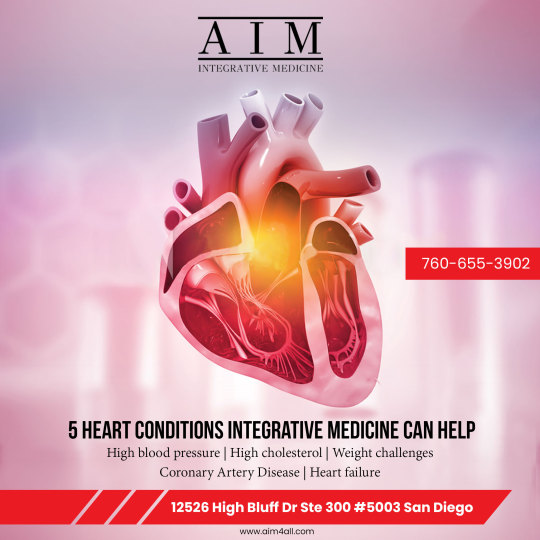#Coronary blood
Text

#kinda hypocritical coming from him you know#sledermans gay cousin ilikemenderman#brother qiu#19 days#tianshan#zhanyi#imagine being part of a big tough gang#people being scared at the sight of you#you have blood on your hands and on your back#and your boss makes you babysit his gay little brother and his gayer little friends#id have a coronary
53 notes
·
View notes
Text

#idk how to properly explain it#but just that one fact alone fuels/gives bushmed so much everything it makes me dizzy#i love the ushankas as much as the next basic tumblr girlie but the bird soulmate blood hits a different coronary artery#oldtxt#mercs#(sighs) archimedes............
17 notes
·
View notes
Text
I'm shaking and so scared. Yesterday my dad had a check up with his cardiologist and it was supposed to be a 'you're fine, everything is okay and the medicine are working' check up but instead he told him he was shook after seeing his ECG and that he had to stay in the hospital. Today they did an cardiac catheterization (for the 3rd or 4th time) and they told us it's actually really bad. They can't even do an angioplasty because it's that bad so they have to operate him and now I'm so freaking scared and worried
#me#personal#my dad#i'm seriously shaking#i just did a google search to see his surviving chances#which are good but still#it's my dad#and i am so afraid#he's been having small problems for a year now#but every time they told him his heart was okay#or that it could be side efects of the medication#but now#he has a blocked coronary artery#and another blood vessel is blocked#like completely#i don't know what to do with myself#trigger warning#i dont know how to tag this#but maybe these words alone will help
7 notes
·
View notes
Text
New Study Finds: Green Tea Extract Promotes Gut Health, Lowers Blood Sugar
New research in people with a range of heart disease risk factors shows that drinking green tea extract for four weeks can lower blood sugar levels and improve gut health by lowering inflammation and reducing "leaky gut." The research was recently published in "Recent Developments in Nutrition."
The researchers say this is the first study to assess whether the health risks associated with metabolic syndrome are reduced by the anti-inflammatory effects of green tea in the gut. Metabolic syndrome affects about one-third of Americans.
"There is a lot of evidence that high consumption of green tea is associated with good levels of cholesterol, glucose, and triglycerides, but no studies link green tea's gut benefits to these health benefits," said senior study author Richard Bruno, professor of human nutrition at The Ohio State University. factors are linked.”.
The team conducted the clinical trial in 40 individuals as a follow-up to a 2019 study that showed that mice consuming green tea supplements had lower rates of obesity, lower health risks and improved gut health.
In the new study, green tea extract also lowered blood sugar, reduced gut inflammation and permeability in healthy people, an unexpected finding.
"This tells us that, within a month, we were able to lower blood sugar in both metabolic syndrome patients and healthy people, and that lowering blood sugar appears to be associated with a reduction in leaky gut and inflammation, regardless of health status," Bruno said.
People with metabolic syndrome have been diagnosed with at least three of five factors that increase their risk of heart disease, diabetes and other health problems - excess belly fat, high blood pressure, low HDL (good) cholesterol, fasting blood sugar and high levels of triglycerides (a type of fat in the blood).
The tricky thing about these risk factors for metabolic syndrome, Bruno says, is that they're often only slightly altered, don't yet require drug management, but still pose a significant risk to health.
"Most doctors will initially recommend weight loss and exercise, but most people can't make lifestyle changes for a variety of reasons," Bruno said. "Our work aims to provide people with a new food-based tool to help them manage their metabolism. Syndromic risk or reversal of metabolic syndrome."
Forty participants, including 21 with metabolic syndrome and 19 healthy adults, consumed gummies containing green tea extract, which is rich in anti-inflammatory compounds called catechins, for 28 days. The daily dose is equivalent to five cups of green tea. In the randomized double-blind crossover trial, all participants took a placebo for 28 days, with one month stopping any supplements between treatments.
The researchers confirmed that during the placebo and green tea extract dessert study phases, the participants were advised to have a diet lower in polyphenols (antioxidants found naturally in fruits, vegetables, tea and spices), so any results could be attributable to on the influence of green tea itself.
The results showed that all participants had significantly lower fasting blood sugar levels after taking green tea extract compared to blood sugar levels after taking a placebo. The analysis found that all participants had reduced intestinal inflammation with green tea treatment and reduced pro-inflammatory proteins in their stool samples. The researchers also found that after drinking green tea, the participants' small intestine permeability decreased significantly.
Gut permeability, or leaky gut, allows gut bacteria and related toxic compounds to enter the bloodstream, stimulating low-grade chronic inflammation.
"We're not trying to cure metabolic syndrome with a one-month study," he said. "But based on what we know about the causal factors behind metabolic syndrome, green tea has the potential to play a part at the gut level to reduce the risk of developing or reversing metabolic syndrome."
Bruno's lab is completing further analyses of the study participants' gut microbiomes and levels of bacteria-related toxins in their blood.

#tea#green tea#chinese tea#Qiandao Silver Needle Tea#lower blood sugar#heart disease#coronary heart disease#cholesterol#glucose#triglycerides#blood sugar#diabetes#metabolic syndrome#hypertension
6 notes
·
View notes
Text

tmw you infiltrate the bestie's awesome whiteboard and get carried away in his absence
#inky's such a good artist jkdfhjkhfdfhdkjhfk#then there's my “keep chasing your schemes” meme comic(??) in the top left corner xxx#idk man it started as one little reference and spiralled#me when i can't do things by halves <//3#got an exam tmrw#not excited <3#i revised for bio on friday via doodling speshul bugs#we had phagocytosis the snail#pathogen the mosquito#coronary heart disease the ochopede#mitosis the spooder#rose black spot the bee#amylase the stick insect#gall bladder the caterpillar#etc etc etc#plus desmond + chadwick + laurel the evil bug exterminators#buttttttttt i have to write an exam on blood brothers tmrw even though i've never. yk. SEEN blood brothers#oh well#i got full marks on the practice i'll be fineee#go check out the whiteboard server guys!!#it's no. 23251398-6686-7422 :))#whiteboard fox#mutuals
0 notes
Text
Heart Attack: What Might Cause Sudden Heart Attacks?
There are many potential causes of sudden heart attacks, such as blocked arteries, an irregular heartbeat, a family history of heart disease, and high blood pressure. If you are experiencing any of the following symptoms, it is important to consult with a doctor immediately: chest pain, shortness of breath, nausea or vomiting, lightheadedness or dizziness. These symptoms may indicate that you are having a heart attack and require immediate medical attention.
0 notes
Text
Integrative Medicine for Cardiovascular Disease and Prevention in San Diego (CA)

Integrative Cardiovascular Care – San Diego
Cardiovascular disease (CVD) remains the number-1 cause of morbidity and mortality globally. Early intervention with angiography and broad-based pharmaceutical therapies has contributed to a decline in deaths from CVD in the United States, yet the prevalence of risk factors and economic burden of CVD remain exceedingly high.
Cardiovascular disease (CVD) is traditionally treated through medications and lifestyle modifications, yet adherence to these treatments is often poor. The use of complementary therapies is increasing, and it is vital for physicians to be aware of the risks and benefits of these options. This article summarizes the current evidence base on integrative therapies for the prevention and treatment of CVD, including hypertension, hyperlipidemia, coronary artery disease, heart failure, and arrhythmias.
Integrative medicine (IM) has developed an increasingly significant role in health care worldwide, including cardiovascular diseases (CVD).
Integrative Treatment Approach In Cardiology
The integrative treatment approach in cardiology focuses on bringing the “rest and digest” system into balance with the “fight or flight” system. Boosting the “rest and digest” nervous system often requires learning the art of meditation, yoga, and movement. It also involves understanding the impact of food on our bodies and putting healthful foods into our system to aid in proper digestion. It also requires us to understand environmental exposures, such as pollution and heavy metal exposures.

Integrative Medicine for Cardiovascular Disease and Prevention
Integrative Medicine can be an effective approach to managing and preventing cardiovascular disease, which is a leading cause of death worldwide. Here are some ways that Integrative Medicine can help:
Nutrition: A healthy diet is key to preventing and managing cardiovascular disease. An Integrative Medicine practitioner can help create an individualized nutrition plan that emphasizes whole, nutrient-dense foods and limits foods that contribute to inflammation, such as sugar, processed foods, and trans fats.
Exercise: Exercise is an important component of cardiovascular disease prevention. An Integrative Medicine practitioner can help create a safe and effective exercise plan that takes into account an individual’s unique needs and limitations.
Stress management: Chronic stress can contribute to the development and progression of cardiovascular disease. Integrative Medicine offers a variety of stress-reducing techniques, such as mindfulness meditation, yoga, and acupuncture, to help manage stress.
Supplementation: Certain supplements, such as omega-3 fatty acids, magnesium, and Coenzyme Q10, have been shown to have cardiovascular benefits. An Integrative Medicine practitioner can recommend appropriate supplements based on an individual’s specific needs.
Mind-body therapies: Mind-body therapies, such as hypnotherapy, guided imagery, and biofeedback, can help manage stress and improve overall well-being, which can, in turn contribute to cardiovascular disease prevention and management.
Traditional Chinese Medicine (TCM): TCM can offer alternative and complementary therapies that have been shown to be effective in the prevention and management of cardiovascular disease, such as acupuncture and herbal medicine.
It’s important to note that Integrative Medicine should be used in conjunction with conventional medical care. An Integrative Medicine practitioner can work with a patient’s healthcare team to create a comprehensive treatment plan that addresses all aspects of the individual’s health and helps prevent and manage cardiovascular disease.

5 Heart Conditions Integrative Medicine Can Help
Integrative medicine combines both holistic treatments and conventional options so that you’re getting a fuller approach to treatment. The more well-rounded approach examines all of your body’s systems and views them as connected. It’s particularly useful in addressing the underlying illnesses that cause heart disease.
In this article, Dr. Hetal Patel of AIM Integrative Medicine, located in San Diego explains more about how integrative medicine can help five common heart conditions.
1. High blood pressure
High blood pressure is often an early warning sign of heart disease. Did you know that lifestyle changes can help lower blood pressure?
Exercise, a change in diet, quitting smoking, and stress reduction are just some interventions proven to lower high blood pressure. Exercising 30 minutes five times a week lowers your blood pressure by 5-8 mm Hg.
2. High cholesterol
Having high blood cholesterol increases your risk of heart disease. But the condition is also reversible with dietary changes, quitting smoking, and regular exercise. Dr. Hetal Patel can help you explore how to change your diet specifically for helping to lower cholesterol.
Foods that can lower cholesterol include those high in soluble fiber, such as oatmeal, apples, and beans. You’ll also want to avoid processed baked goods and other processed food, as many of these are high in trans fats, which are linked to high cholesterol.
3. Weight challenges
You may struggle with your weight. You aren’t alone; the majority of Americans do. You may not think a few extra pounds is a big deal, but it increases your risk of heart disease.
Losing some weight might seem like a daunting task. But the truth is, even losing a little bit of weight has positive benefits for lowering your risk of heart disease. If you are significantly overweight, losing 10% of your body weight can improve your heart health.
4. Coronary Artery Disease
Coronary artery disease develops over many years. It is caused by damage to the lining of your blood vessels. The damage can be due to smoking, high blood pressure, high cholesterol, diabetes, or not being active enough.
Dr. Hetal Patel can help you change the lifestyle factors that lead to coronary artery disease before it gets worse. In addition to getting more exercise, improving your diet, and quitting smoking, she also recommends reducing stress. Chronic stress has an oxidative effect on your body, making disease states such as heart disease worse.
Integrative medicine helps balance the “fight or flight” mode that most of us live with (often unconsciously) with a “rest and digest” mode. That includes activities such as yoga and meditation, as well as reviewing environmental factors.
5. Heart failure
If you’ve been told that you have heart failure, you’re understandably anxious. And while you shouldn’t stop seeing a cardiologist if you have heart failure, you can benefit from seeing an integrative medicine specialist, too. The above treatments can still help you even if you’re already living with heart failure.

Reduce Your Risk of Heart Disease with Integrative Medicine
Cardiovascular diseases claim more lives than the other top 4 leading causes of death combined in the U.S., and yet the average person isn’t aware that as much as 80% of heart disease conditions are preventable.
So what would an integrative doctor recommend to keep your heart healthy that you can start right now? We’ll focus on three main categories of lowering your risk:
Food and diet recommendations
Lifestyle Factors
Early testing and detection methods
#health & fitness#healthcare#self care#Heart Disease Management by Integrative Medicine#Integrative Medicine#Dr. Hetal patel#San Diego#Cardiovascular Disease#Cardiovascular Disease and Prevention#High Blood Pressure#High Cholestrol#Weight Challenges#coronary artery disease#heart failure
0 notes
Text
Unraveling the Complexity of Heart Disease: Exploring its Causes and Prevention
Heart disease is a term that encompasses a range of conditions affecting the heart, including coronary artery disease, heart failure, arrhythmias, and more. It remains one of the leading causes of death worldwide, making it crucial to understand its causes and take preventive measures. In this blog post, we will delve into the intricacies of heart disease, exploring its various causes and…

View On WordPress
#heart disease#prevention#sedentary lifestyle#blood pressure#Cholesterol#coronary artery disease#exercise#healthy eating#healthy weight.#high cholesterol#hypertension#smoking#smoking cessation#diabetes#obesity
0 notes
Text
10 Surprising Health Benefits of Eating Dark Chocolate
Introduction:
Dark chocolate is not only a tasty treat, but it also has a variety of health benefits that may surprise you. From improving heart health to boosting brain function, there are many reasons to indulge in a bit of dark chocolate every day. In this article, we’ll explore the top 10 health benefits of dark chocolate, backed by scientific research and expert opinions.
Top 10 Benefits of…

View On WordPress
#added sugars#antioxidant status#antioxidants#blood pressure#brain function#cocoa#cognitive functions#coronary vasomotion#dark chocolate#dietary intake#endothelium-dependent vasodilation#Exercise#flavanols#health benefits#healthy diet#healthy treat#heart health#high-quality brands#hypertension#insulin resistance#lipid metabolism#lipid profile#minimal processing#moderate intensity cycling#organic cocoa beans#platelet reactivity#scientific research#type 2 diabetes#visual functions#weight loss
0 notes
Text
Coronary Artery Disease: Can You Restore Normal Blood Flow to the Heart?
Coronary Artery Disease: Can You Restore Normal Blood Flow to the Heart? #HeartBlockages #CoronaryArteryDisease #CAD #HeartHealth #BloodFlow #ReversingBlockages #sciencenews #healthnews
Coronary artery disease (CAD) is a common heart condition in which the blood vessels supplying your heart become narrow or blocked due to plaque buildup. This can lead to chest pain, shortness of breath and other serious complications like heart attack or stroke. If you have Coronary Artery Disease, you may be wondering if there’s any way to reverse these blockages and restore normal heart blood…

View On WordPress
0 notes
Text
#Sibia Medical Centre is the best heart hospital for No Surgery cardiac care alternative treatments for Chest pain#angina#Coronary Artery Disease (CAD)#heart attack patients#Diabetes#Blood pressure#Leg Pain#Parkinson's#Cerebral ischemia unfit for angiography#angioplasty stents & heart bypass surgery (CABG)#to avoid them and for post-covid cardio-pulmonary rehabilitation with CCG heart flow mapping#EECP Natural Bypass#Chelation Therapy (ACT) (BCA)#ESMR Cardiac Shockwave Angiogenesis#Also treat Kidney stone#Knee pain#cancer tumor palliation#detoxification#immunity#antiaging#Spinal correction for backache#cervical spondylosis#sciatica#lose weight#remove stubborn fat#lose inches#and look smart with Zerona#IPL Laser for unwanted hair#wrinkles#pigmentation
0 notes
Text
#Cardiovascular disease is a term used to describe any type of heart or blood vessel-related illness. The word ‘cardiovascular’ literally mea#so#any disease that is related to the heart or blood vessels can be considered as cardiovascular.#Cardiovascular disease is the prime cause of death and disability in the world. Cardiovascular diseases are responsible for over 17 million#Cardiovascular diseases can be caused by a range of factors including unhealthy life style#smoking#high cholesterol levels#high blood pressure#obesity#diabetes#lack of exercise and genetics.#It’s important to notice cardiovascular disease early on#so that the required treatment and management can begin.#TYPES OF CARDIOVASCULAR DISEASES:#There are a range of cardiovascular diseases which involves heart:#CORONARY ARTERY DISEASE:#Coronary artery disease#also known as coronary heart disease#is a condition in which the coronary arteries become narrowed and blocked. Coronary artery disease is caused by atherosclerosis#in which plaque builds up inside the artery walls. When the blood supply is cut off (due to a blockage)#it can lead to angina or a heart attack.#ANGINA:#Angina is chest pain felt when the heart muscle doesn’t have enough oxygen. Angina is typically treated with nitrates#but sometimes a patient may need surgery or other treatments. The symptoms of angina include: chest pain#pressure#or heaviness#Palpitations#Shortness of breath#Dizziness#Nausea and vomiting .Chest pain radiating to the arm
1 note
·
View note
Text
A new 'heart attack on a chip' could serve as a test bed for developing personalized drugs
A new ‘heart attack on a chip’ could serve as a test bed for developing personalized drugs
Researchers from the Alfred E. Mann Department of Biomedical Engineering at the University of Southern California have developed a “heart attack on a chip,” a device that could one day serve as a test bed for developing new heart drugs and even personalized drugs.
“Our device replicates some key features of a heart attack in a relatively simple and easy-to-use system,” said Megan McCain,…
View On WordPress
#Blood#Cell#cellular biology#CHIP#Coronary disease#Drugs#Heart#Heart attack#heart disease#Medicine#Myocardial infarction#Oxygen#Protein#To research
0 notes
Text
#Treatment Heart Problems Good general physician near me#Coronary artery disease (CAD)#Heart attack#High blood pressure#Cardiomyopathy#Valve disease
0 notes
Photo

(via How to Protect Yourself from Cardiomyopathy and Cardiovascular Disease)
Cardiovascular disease can lead to numerous problems if you don’t take the necessary precautions to protect yourself from its potential harm. Cardio myopathy and cardiovascular disease may seem like the same thing, but they are in fact very different, with the former affecting your heart’s muscles and the latter attacking your blood vessels, among other parts of your body. If you want to know more about cardiomyopathy and cardiovascular disease, including how you can protect yourself from these conditions and how to treat them should they occur, keep reading.
#arrhythmias#blood#blood vessels#cardiac arrest#cardiomyopathy#cardiovascular#coronary artery#disease#doctor#exercise#health#heart#heart muscle#smooking#treatments
1 note
·
View note
Text
Now we know how COVID attacks your heart
Even patients with mild COVID symptoms could face a higher risk of developing heart disease and stroke
By Sanjay Mishra Nov 07, 2023 04:08 PM 5 min. read
Scientists have noticed that COVID-19 can trigger serious cardiovascular problems, especially among older people who have a buildup of fatty material in their blood vessels. But now a new study has revealed why and shown that SARS-CoV-2, the virus that causes COVID-19, directly infects the arteries of the heart.
The study also found that the virus can survive and grow inside the cells that form plaque—the buildup of fat-filled cells that narrow and stiffen the arteries leading to atherosclerosis. If the plaque breaks, it can block blood flow and cause a heart attack or a stroke. The SARS-CoV-2 infection makes the situation worse by inflaming the plaque and increasing the chance that it breaks free.
This can explain long-term cardiovascular effects seen in some, if not all, COVID-19 patients.
SARS-CoV-2 virus has already been found to infect many organs outside the respiratory system. But until now it hadn't been shown to attack the arteries.
"No one was really looking if there was a direct effect of the virus on the arterial wall," says Chiara Giannarelli, a cardiologist at NYU Langone Health, in New York, who led the study. Giannarelli noted that her team detected viral RNA—the genetic material in the virus—in the coronary arteries. “You would not expect to see [this] several months after recovering from COVID.”
Mounting evidence now shows that SARS-CoV-2 is not only a respiratory virus, but it can also affect the heart and many other organ systems, says Ziyad Al-Aly, a clinical epidemiologist at Washington University in St. Louis. Al-Aly's research has shown that the risk of developing heart and cardiovascular diseases, including heart failure, stroke, irregular heart rhythms, cardiac arrest, and blood clots increases two to five times within a year of COVID-19, even when the person wasn't hospitalized.
"This important study links, for the first time, directly the SARS-CoV-2 virus with atherosclerotic plaque inflammation," says Charalambos Antoniades, chair of cardiovascular medicine at the University of Oxford, United Kingdom.
Virus triggers the inflammation in plaque
A recent study of more than 800,000 people led by Fabio Angeli, a cardiologist at University of Insubria in Varese, Italy, has shown that COVID-19 patients develop high blood pressure twice as often as others. More worrying is that the risk of cardiac diseases can also rise for patients who suffered only mild COVID symptoms.
"I saw a patient who now has a defibrillator, and she didn't even have a severe [COVID] illness," says Bernard Gersh, a cardiologist at Mayo Clinic, Rochester, Minnesota.
Wondering whether the cardiovascular damage during COVID was due to the virus directly attacking the blood vessels, the NYU team analyzed autopsied tissue from the coronary arteries and plaque of older people who had died from COVID-19. They found the virus was present in the arteries regardless of whether the fatty plaques were big or small.
"The original finding in this study is that the virus was convincingly found in the plaque in the coronary artery," says Juan Carlos Kaski, a cardiovascular specialist at St George's, University of London, who was not involved in the study.
The NYU team found that in the arteries, the virus predominantly colonized the white blood cells called macrophages. Macrophages are immune cells that are mobilized to fight off an infection, but these same cells also absorb excess fats—including cholesterol from blood. When microphages load too much fat, they change into foam cells, which can increase plaque formation.
To confirm that the virus was indeed infecting and growing in the cells of the blood vessels, scientists obtained arterial and plaque cells—including macrophages and foam cells—from healthy volunteers. Then they grew these cells in the lab in petri dishes and infected them with SARS-CoV-2.
Giannarelli found that although virus infected macrophages at a higher rate than other arterial cells, it did not replicate in them to form new infectious particles. But when the macrophages had become loaded with cholesterol and transformed into foam cells, the virus could grow, replicate, and survive longer.
"We found that the virus tended to persist longer in foam cells," says Giannarelli. That suggests that foam cells might act as a reservoir of SARS-CoV-2. Since more fatty buildup would mean a greater number of foam cells, plaque can increase the persistence of the virus or the severity of COVID-19.
Scientists found that when macrophages and foam cells were infected with SARS-CoV-2 they released a surge of small proteins known as cytokines, which signal the immune system to mount a response against a bacterial or viral infection. In arteries, however, cytokines boost inflammation and formation of even more plaque.
"We saw that there was a degree of inflammation [caused] by the virus that could aggravate atherosclerosis and cardiovascular events," says Giannarelli.
These findings also confirm previous reports that measuring inflammation in the blood vessel wall can diagnose the extent of long-term cardiovascular complications after COVID-19, says Antoniades.
"What this study has found is that plaque rupture can be accelerated and magnified by the presence of the virus," says Kaski.
Understanding heart diseases after COVID
While this new research clearly shows that SARS-CoV-2 can infect, grow, and persist in the macrophages of plaques and arterial cells, more studies are needed to fully understand the many ways COVID-19 can alter cardiac health.
"The NYU study identifies one potential mechanism, especially the viral reservoir, to explain the possible effects" says Gersh. "But It's not going to be the only mechanism."
This study only analyzed 27 samples from eight elderly deceased patients, all of whom already had coronary artery disease and were infected with the original strains of virus. So, the results of this study do not necessarily apply to younger people without coronary artery disease; or to new variants of the virus, which cause somewhat milder disease, says Angeli.
"We do not know if this will happen in people who have been vaccinated," says Kaski. "There are lots of unknowns."
It is also not clear whether and to what extent the high inflammatory reaction observed in the arteries of patients within six months after the infection, as shown in the new study, will last long-enough to trigger new plaque formation. "New studies are needed to show the time-course of the resolution of vascular inflammation after the infection," says Antoniades.
COVID patients should watch for any new incidence of shortness of breath with exertion, chest discomfort, usually with exertion, palpitations, loss of consciousness; and talk to their physician about possible heart disease.
375 notes
·
View notes